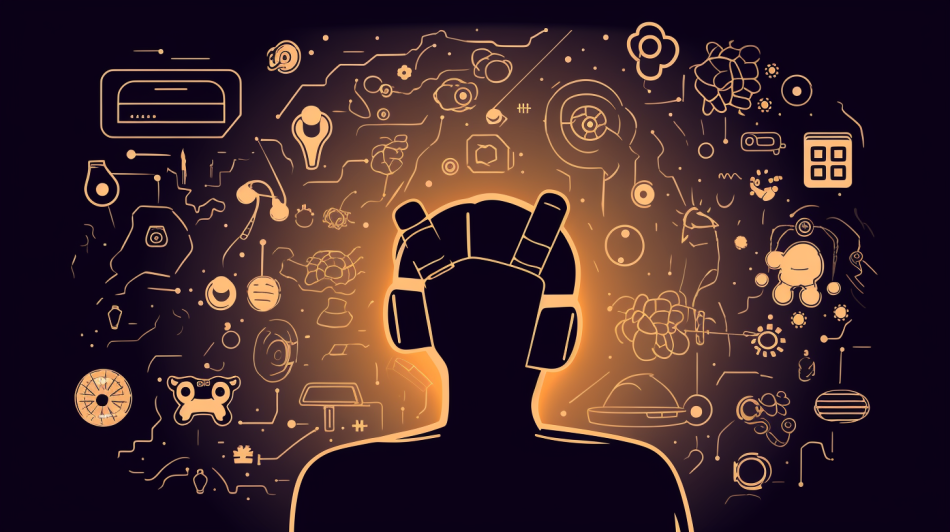When it comes to gaming, the real battle doesn’t necessarily unfold on the screen. It takes place in the intricate labyrinth of the mind, where cognition, focus, and memory become the tools of triumph. Over the years, the field of cognitive enhancement has gained prominence, largely thanks to nootropics—often hailed as the ‘best brain supplements’—which are believed to boost mental performance. This attribute seems particularly potent within the competitive world of gaming.
Understanding Nootropics: More than Just the Best Brain Supplements
Nootropics, or ‘smart drugs,’ are compounds known to enhance cognitive function, especially executive functions such as memory, creativity, or motivation, in healthy individuals (1). The catchy moniker ‘best brain supplements’ may pique initial interest, but it’s crucial to delve deeper into the science behind these substances, their impact on the brain, and their potential implications in the gaming context.
The Science Behind Nootropics
At their core, nootropics operate by modulating neuronal metabolism, enhancing cerebral oxygenation, regulating neurotransmitter availability, promoting neurotrophic factors, and influencing other cellular processes (2). The result is typically an enhanced cognitive function and an overall improvement in brain health. This means that gamers who use nootropics may experience increased focus, improved memory recall, and more efficient problem-solving skills—factors that can be the difference between a win or a loss in a competitive gaming situation.
Classifications of Nootropics
Nootropics can be broadly classified into two categories: synthetic compounds like racetams, and natural nootropics like Ginkgo biloba. While both types have been reported to enhance cognitive performance, their specific mechanisms of action, potential side effects, and longevity of effects may vary significantly (3). It’s also worth noting that the effects of nootropics can vary depending on the individual and the specific cognitive functions they target.
Harnessing Nootropics for Gaming: A Performance Catalyst
In the hyper-competitive world of gaming, cognitive prowess is everything. Players are often required to remember complex game sequences, quickly formulate innovative strategies, and maintain razor-sharp focus throughout extended periods of gameplay.
Improving Cognitive Functions
Nootropics have been documented to enhance these cognitive domains, specifically working memory and attention. For instance, substances like Modafinil and Adderall have been demonstrated to increase attention and cognition in individuals both with and without ADHD, thereby making them appealing options for gamers seeking to improve their mental agility (4).
Enhancing Mental Processing and Reaction Speed
Furthermore, certain nootropics, such as caffeine, can potentially enhance mental processing speed and reaction time—an invaluable asset in the fast-paced world of competitive gaming where every millisecond counts (5). However, the extent of these effects may vary greatly among individuals due to genetic factors, metabolism rates, and overall health.
Considerations When Choosing Nootropics
Before embarking on a journey with nootropics, it’s critical to consider certain factors to ensure safety and effectiveness. Nootropics are not a one-size-fits-all solution, and what works for one person might not necessarily work for another.
Safety and Effectiveness
The first step is to examine the safety profile of the chosen nootropic thoroughly and critically review the evidence supporting its effectiveness. It’s also strongly recommended to consult with a healthcare provider to rule out any potential adverse effects or interactions, especially for individuals who may already be taking other medications.
The Role of Personalized Nootropics
Another increasingly prominent element in the world of nootropics is the concept of personalized nootropics. These are specifically tailored based on individual genomic data to optimize cognitive performance while minimizing side effects (6). This is a groundbreaking approach as it addresses individual differences in genetics and metabolism that may affect how a person responds to different nootropics. This might be the future of cognitive enhancement, providing gamers with the most effective and safest means of gaining a competitive edge.
Nootropics and Ethical Considerations
When discussing nootropics, one cannot sidestep the ethical considerations. There’s ongoing debate about whether using cognitive enhancers can be considered ‘cheating’ in a competitive setting like gaming. The current consensus leans towards a liberal approach, with the understanding that if safe and non-addictive substances can enhance one’s cognitive function, they should not be withheld from those who wish to use them (7).
However, the onus is on the users to ensure they are not creating an unfair competitive environment. This is particularly true in gaming, where the spirit of fair competition is held in high regard. Ensuring all players have equal access to cognitive enhancers, and setting regulations around their use, might be a solution to maintaining a level playing field.
Conclusion: The Future of Nootropics in Gaming
As we stride further into the era of competitive gaming, the role of nootropics seems promising. With the potential to enhance cognitive performance and provide gamers with that much-needed edge, the ‘best brain supplements’ may be the key to unlocking gaming mastery. However, it is crucial to navigate this territory responsibly, ensuring a priority on scientific evidence, personal safety, and ethical considerations. With ongoing research in this field, we may be on the brink of ushering in a new era of cognitive enhancement in gaming.
References:
Brem, A. K., & Al-Karawi, D. (2018). Modulation of cognition and mood following administration of single doses of Ginkgo biloba. Psychopharmacology, 235(3), 731-749.
Urban, K. R., & Gao, W. J. (2014). Performance enhancement at the cost of potential brain plasticity: neural ramifications of nootropic drugs in the healthy developing brain. Frontiers in systems neuroscience, 8, 38.
Giurgea, C. (1972). The nootropic concept and its prospective implications. Drug Development Research, 2(5), 441-446.
Bagot, K. S., & Kaminer, Y. (2014). Efficacy of stimulants for cognitive enhancement in non-attention deficit hyperactivity disorder youth: a systematic review. Addiction, 109(4), 547-557.
Einöther, S. J., & Giesbrecht, T. (2013). Caffeine as an attention enhancer: reviewing existing assumptions. Psychopharmacology, 225(2), 251-274.
Wightman, E. L., Reay, J. L., Haskell, C. F., Williamson, G., Dew, T. P., & Kennedy, D. O. (2014). Effects of resveratrol alone or in combination with piperine on cerebral blood flow parameters and cognitive performance in human subjects: a randomised, double-blind, placebo-controlled, cross-over investigation. British journal of nutrition, 112(2), 203-213.
Maslen, H., Faulmüller, N., & Savulescu, J. (2014). Pharmacological cognitive enhancement—how neuroscientific research could advance ethical debate. Frontiers in systems neuroscience, 8, 107.













